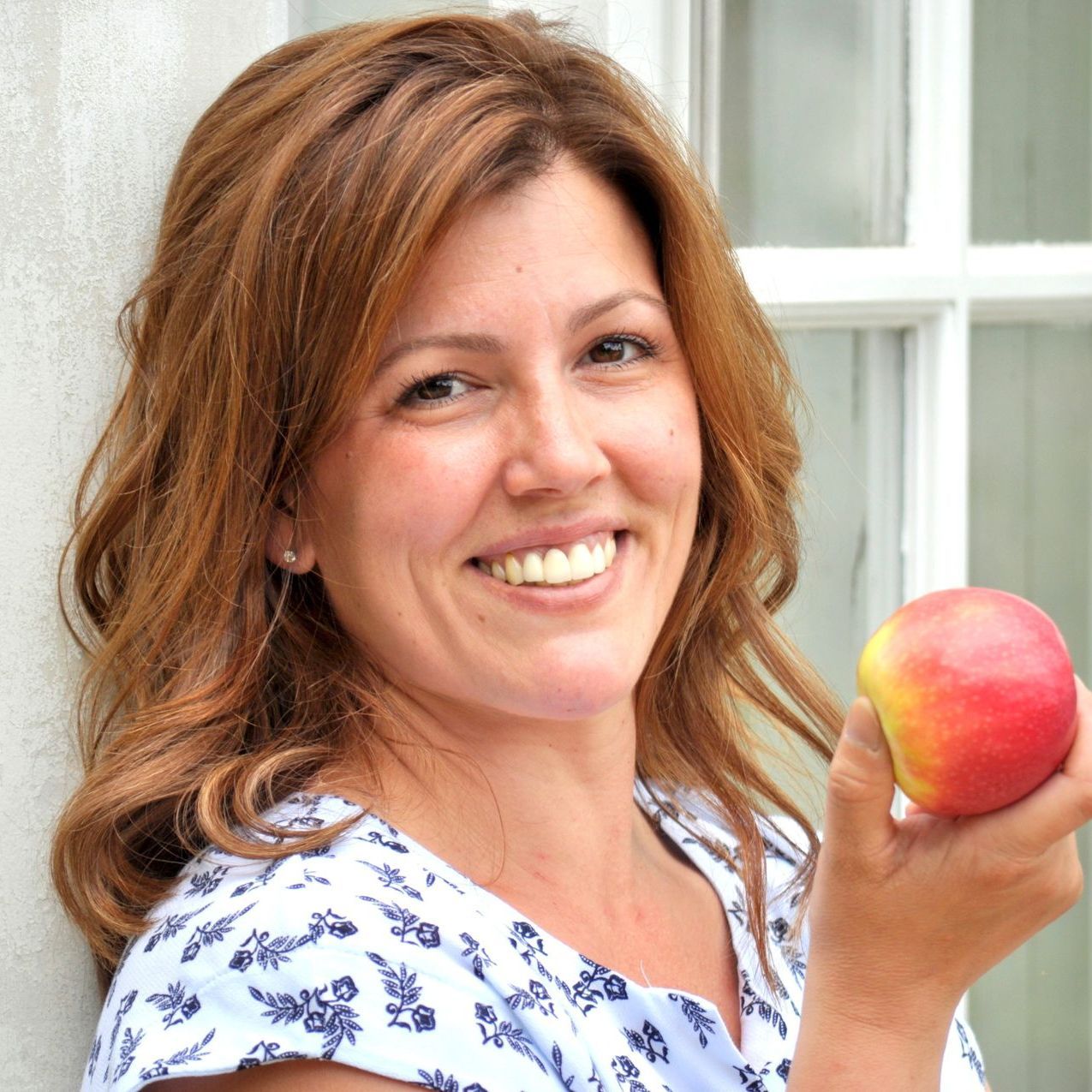Supplements for Fertility When Trying to Conceive

If you and your partner have been struggling to get pregnant, it’s a good bet you’ve done a million web searches to find all the tips you can for improving your fertility. And you’ve probably run into a page or two about
fertility supplements. The internet, being what it is, however, is loaded with conflicting information about what to take, what not to take, and how much of it. The amount of information out there is overwhelming, and not all of it is useful. Today our
holistic fertility services team will bring together what the latest science says about supplements for fertility and why they might be helpful on your path to having a baby.
The Role of Supplements in Enhancing Fertility
Nutrition matters. Good nutrition boosts energy and keeps health problems away. Poor nutrition leads to a multitude of health problems. So, when you’re trying to create an entirely new human being, the need for good nutrition increases significantly for both parties on “Team Conception.”
The human body was optimally designed to absorb nutrients from real food.¹ So, eating a nutrient-dense, whole-foods-based diet full of veggies, fruits, whole grains, plant-based and lean animal proteins, and healthy fats has been shown to reduce inflammation, regulate hormones, and reduce the incidence of all kinds of diseases. A diet like this is truly a fertility diet, helping enhance fertility for men and women. We know, for instance, that good nutrition helps to regulate fertility functions in both men² and women³, including:
- Menstrual cycles
- Ovulation
- Thyroid health
- The immune system
- Energy production
- Egg quality
- Sperm quality
We also know that getting all the nutrients you need from food only can be difficult. This is particularly true if either team member (male or female) has any nutritional deficiencies or conditions that inhibit nutrient absorption from a healthy diet. For example, people with Celiac disease or other significant food sensitivities or allergies must avoid certain foods, even if they are ordinarily nutritious for most people. Fertility supplements can bridge those gaps.
Our holistic fertility team often recommends couples struggling to conceive take a close look at their diets to see if anything on the menu isn’t serving their fertility needs sufficiently. In fact, we offer an excellent
12-week fertility nutrition course and a
14-day fertility detox program, both provided by our certified fertility nutritionist. These resources have been beneficial for many couples. Working together through your unique situation and the available science, we can recommend supplements for fertility and
healthy pregnancy that can cover critical nutritional gaps to help improve your chances of having a baby.
Essential Supplements for Fertility
The following nutrients are essential for good health and fertility. Working with your doctor and our fertility nutritionist, we can evaluate your current diet and help you work out the optimal levels of these nutrients in your regular diet, and through supplementation. And if gaps exist, we can recommend fertility supplements to help cover those deficiencies.
1. Folic Acid
Folic acid is the synthetic version of vitamin B9 that is really only available in supplement form, or foods fortified with it. Folic acid is incredibly important for women trying to get pregnant, or who are pregnant already. It contributes to healthy
fetal development and prevents birth defects, particularly neural tube defects that hurt a baby’s nervous system.⁴ The current recommendations are that women of reproductive age get at least 400 mcg of folic acid daily, but recent research suggests that women trying to improve their fertility take up to 800 mcg per day.⁵ The current science says this may help balance fertility hormones and contribute to healthy follicles in the ovaries. Research also suggests that folic acid supplementation in men may have a positive impact on IVF outcomes as well.⁶

2. B Vitamins
Vitamins B6 and B12 may also affect fertility levels. Both of these seem to play a key role in helping the body metabolize the amino acid homocysteine. Overly high levels of homocysteine can interfere with fertility and pregnancy.⁷ Getting optimal levels of These vitamins seems to help improve embryo health during the IVF cycle.⁸ Another study concluded that optimal levels of B vitamins can help improve fertility in women who are struggling with PCOS.⁹
3. Vitamin D
Research indicates that optimal levels of vitamin D may help both men and women on their fertility journeys. Several studies seem to indicate that vitamin D improves sperm parameters for men.¹⁰ Other studies suggest that vitamin D can help regulate hormones in reproductive-age women, especially helping improve fertility levels for women who have PCOS.¹¹
4. Fish Oil
The Omega-3 fatty acids found in certain fish oils have a host of health benefits, but some studies also indicate benefits for fertility. Several studies have found that women who increased their omega-3 fatty acid intake had an increased rate of successful IVF pregnancies specifically.¹² More research is needed on natural pregnancies in this area. Also, another study showed that increased omega-3 fatty acid intake improved sperm motility in men struggling with infertility.¹³
5. Coenzyme Q10 (CoQ10)
Your body naturally produces Coenzyme Q10, which behaves as an antioxidant, reducing oxidative stress on several systems, potentially including the reproductive system. A couple of studies have shown an increase in clinical pregnancy rates for women undergoing IVF when they took CoQ10 supplements. It seems possible that CoQ10 stimulates the ovaries of women struggling with poor ovarian reserve.¹⁴
6. Selenium
This trace mineral and antioxidant found in Brazil nuts, meat, and other sources helps build proteins in the body. Although more research is needed, some studies suggest that selenium deficiencies can cause problems with both male and female infertility, including problems with pregnancy.¹⁵
7. Myo-Inositol
Myo-inositol is the supplement form of a carbohydrate particularly found in legumes, nuts, wheat bran, bananas, and some other foods. Several studies indicate positive fertility benefits of Myo-inositol for both men and women. Myo-inositol seems to regulate insulin responses in women with PCOS, regulating ovulation and menstrual cycles.¹⁶ For men, 90 days of inositol supplementation statistically improved sperm quality in terms of both concentration and motility.¹⁷
8. Omega-3 Fatty Acids
The omega-3 fatty acids often found in fish oils are known to be helpful for fertility. Optimal levels of omega-3s improve pregnancy rates in women undergoing IVF and also seem to help with natural pregnancies.¹⁸ In addition to fish oils, plant-based sources of omega-3 fatty acids include flaxseeds, walnuts, chia seeds, edamame, hemp seeds, and seaweed.
9. Vitamin C
Vitamin C is a critical antioxidant that protects the body’s cells from free radical damage, which can impact fertility. While citrus fruits are famed for their vitamin C content, many fruits and veggies like broccoli, acerola cherries, berries, guavas, bell peppers, rose hips, kale, cantaloupe and parsley have impressive amounts too. Optimal amounts of vitamin C and other antioxidants are important for ovulation, and the luteal phase for women, and seem to help with sperm quality in men.¹⁹
10. L-Arginine
L-arginine is an amino acid that helps with blood circulation, cellular communication, and cellular energy production (mitochondrial functions). All of these are critical to fertility, and L-arginine seems to help, especially in men with erectile dysfunction.²⁰

11. Iron
While most people can get the iron they need from foods like spinach, lean red meat, legumes, pumpkin seeds, etc., some struggle with anemia (abnormally low numbers of healthy red blood cells; 3.6% of males and 7.6% of non-pregnant females).²¹ Scientists have found clear links between iron deficiency and infertility in men²² and women²³, suggesting that couples who are struggling to get pregnant may want to ask their doctor or nutritionist about dietary changes and iron supplementation in the appropriate dosages.
12. Zinc
Zinc is a mineral antioxidant the body needs in many ways, including reproductive functions in both men and women. Studies in men struggling with infertility showed that zinc plays an important role in sperm activity and quality.²⁴ Studies in women with PCOS specifically found that zinc helped regulate lipid balance and insulin resistance, improving egg development and fertilization efforts.²⁵
13. Antioxidants (Vitamins C & E)
Antioxidants are important nutrients that prevent cellular damage from free radicals in your body. Free radicals are atomic-level forces that can help with cell division and communication. However, when they are out of control and build up in the body, they can cause oxidative stress, which damages cells and causes inflammation, hindering reproductive efforts. Enter antioxidants like vitamins C and E, which are found in many foods, especially fruits, vegetables, and wheat germ, in the case of vitamin E. In the right amounts (neither too much, nor too little), they have been shown to improve sperm health in men and help stimulate healthy endometrial development in women.²⁶
14. Prenatal Multivitamin
The reproductive systems of men and women are so complex and intricate while strong correlations between good nutrition and fertility vs. nutrient deficiencies and infertility clearly exist, many of the intricate mechanisms that cause those consequences are still not fully understood. Fertility-impacting nutrient deficiencies themselves are complex. Chronic diseases, malabsorption because of digestive issues, poor diet, and stress can impact how well-nourished we are. If you find that you are lacking in any of these nutrients, or others that may affect fertility, a good
prenatal vitamin can help. To ensure that your prenatal vitamin meets your needs, ask your doctor about serum testing for nutrients in your blood, and talk with our fertility nutritionist about supplements for fertility that would address your circumstances.
Do Vitamin Deficiencies Affect Fertility
The bulk of the research says yes. Vitamin and mineral deficiencies can harm the reproductive systems of both men and women, just as they harm other systems in the body. To create a healthy environment for healthy sperm and a healthy egg to meet and create a baby, fertility supplements can boost essential nutrient levels to help create that environment.
How to Choose the Right Fertility Supplements

Choosing the right
fertility supplements doesn’t have to be as hard as your high school chemistry class,
especially if you get help from our Pulling Down the Moon fertility nutritionist. We keep an eye on the science and have selected our own supplements based on the latest data about optimal levels of each of these and other beneficial nutrients. It can also be helpful to talk with your doctor about blood serum testing to see if you have any
fertility-impacting conditions or deficiencies specific to you. That way we have more information to work with as we create a whole nutrition plan that can help you bring your body’s ecosystem into a more fertile state, starting with a
fertility diet first, and then adding supplements you may need on top of that.
Nutrition & Supplement Support at Pulling Down the Moon
Pulling Down the Moon is a supportive, truly understanding community of holistic fertility experts in Chicago and Highland Park, dedicated to helping people grow their families. Schedule an appointment with us today and let’s look into all the different ways we can help you and your partner in your fertility efforts. In addition to supplements for fertility, we provide massage therapy, acupuncture, yoga, and so much more. Reach out to us today to learn more.
References
¹Lentjes, M. A. (2019). The balance between food and dietary supplements in the general population. The Proceedings of the Nutrition Society, 78(1), 97–109. https://doi.org/10.1017/S0029665118002525
²Giahi, L., Mohammadmoradi, S., Javidan, A., & Sadeghi, M. R. (2016). Nutritional modifications in male infertility: a systematic review covering 2 decades. Nutrition Reviews, 74(2), 118–130. https://doi.org/10.1093/nutrit/nuv059
³Skoracka, K., Ratajczak, A. E., Rychter, A. M., Dobrowolska, A., & Krela-Kaźmierczak, I. (2021). Female Fertility and the Nutritional Approach: The Most Essential Aspects. Advances in Nutrition, 12(6). https://doi.org/10.1093/advances/nmab068
⁴Greenberg, J. A., Bell, S. J., Guan, Y., & Yu, Y.-H. (2011). Folic Acid Supplementation and Pregnancy: More than Just Neural Tube Defect Prevention. Reviews in Obstetrics & Gynecology, 4(2), 52–59. https://www.ncbi.nlm.nih.gov/pmc/articles/PMC3218540/
⁵Kadir, M., Hood, R. B., Mínguez-Alarcón, L., Maldonado-Cárceles, A. B., Ford, J. B., Souter, I., Chavarro, J. E., & Gaskins, A. J. (2021). Folate intake and ovarian reserve among women attending a fertility center. Fertility and Sterility. https://doi.org/10.1016/j.fertnstert.2021.09.037
⁶Mathieu d’Argent, E., Ravel, C., Rousseau, A., Morcel, K., Massin, N., Sussfeld, J., Simon, T., Antoine, J.-M., Mandelbaume, J., Daraï, E., & Kolanska, K. (2021). High-Dose Supplementation of Folic Acid in Infertile Men Improves IVF-ICSI Outcomes: A Randomized Controlled Trial (FOLFIV Trial). Journal of Clinical Medicine, 10(9), 1876. https://doi.org/10.3390/jcm10091876
⁷Skoracka, K., Ratajczak, A. E., Rychter, A. M., Dobrowolska, A., & Krela-Kaźmierczak, I. (2021). Female Fertility and the Nutritional Approach: The Most Essential Aspects. Advances in Nutrition, 12(6). https://doi.org/10.1093/advances/nmab068
⁸Zhang, L., Wu, L., Xu, W., Tian, Y., Liu, X., Xia, C., Zhang, L., Li, S., Jin, Z., Wu, X., & Shu, J. (2022). Status of maternal serum B vitamins and pregnancy outcomes: New insights from in vitro fertilization and embryo transfer (IVF-ET) treatment. Frontiers in Nutrition, 9. https://doi.org/10.3389/fnut.2022.962212
⁹Thornburgh, S., & Gaskins, A. J. (2022). B vitamins, polycystic ovary syndrome, and fertility. Current Opinion in Endocrinology, Diabetes, and Obesity, 29(6), 554–559. https://doi.org/10.1097/MED.0000000000000773
¹⁰Tania, C., Tobing, E. R. P. L., Tansol, C., Prasetiyo, P. D., Wallad, C. K., & Hariyanto, T. I. (n.d.). Vitamin D supplementation for improving sperm parameters in infertile men: A systematic review and meta-analysis of randomized clinical trials. Arab Journal of Urology: An International Journal, 21(4), 204–212. https://doi.org/10.1080/2090598X.2023.2165232
¹¹Chu, C., Tsuprykov, O., Chen, X., Elitok, S., Krämer, B. K., & Hocher, B. (2021). Relationship Between Vitamin D and Hormones Important for Human Fertility in Reproductive-Aged Women. Frontiers in Endocrinology, 12, 666687. https://doi.org/10.3389/fendo.2021.666687
¹²Stanhiser, J., Jukic, A. M. Z., McConnaughey, D. R., & Steiner, A. Z. (2022). Omega-3 fatty acid supplementation and fecundability. Human Reproduction (Oxford, England), 37(5), 1037–1046. https://doi.org/10.1093/humrep/deac027
¹³Hosseini, B., Nourmohamadi, M., Hajipour, S., Taghizadeh, M., Asemi, Z., Keshavarz, S. A., & Jafarnejad, S. (2018). The Effect of Omega-3 Fatty Acids, EPA, and/or DHA on Male Infertility: A Systematic Review and Meta-analysis. Journal of Dietary Supplements, 16(2), 245–256. https://doi.org/10.1080/19390211.2018.1431753
¹⁴Xu, Y., Nisenblat, V., Lu, C., Li, R., Qiao, J., Zhen, X., & Wang, S. (2018). Pretreatment with coenzyme Q10 improves ovarian response and embryo quality in low-prognosis young women with decreased ovarian reserve: a randomized controlled trial. Reproductive Biology and Endocrinology: RB&E, 16(1), 29. https://doi.org/10.1186/s12958-018-0343-0
¹⁵Mistry, H. D., & Kurlak, L. O. (2015, January 1). Chapter 24 - Selenium in Fertility and Reproduction (R. R. Watson, Ed.). ScienceDirect; Academic Press. https://www.sciencedirect.com/science/article/abs/pii/B978012800872000024X
¹⁶Skoracka, K., Ratajczak, A. E., Rychter, A. M., Dobrowolska, A., & Krela-Kaźmierczak, I. (2021). Female Fertility and the Nutritional Approach: The Most Essential Aspects. Advances in Nutrition, 12(6). https://doi.org/10.1093/advances/nmab068
¹⁷Canepa, P., Dal Lago, A., De Leo, C., Gallo, M., Rizzo, C., Licata, E., Anserini, P., Rago, R., & Scaruffi, P. (2018). Combined treatment with myo-inositol, alpha-lipoic acid, folic acid, and vitamins significantly improves sperm parameters of sub-fertile men: a multi-centric study. European Review for Medical and Pharmacological Sciences, 22(20), 7078–7085. https://doi.org/10.26355/eurrev_201810_16180
¹⁸Politano, C. A., & López-Berroa, J. (2020). Omega-3 Fatty Acids and Fecundation, Pregnancy and Breastfeeding. Revista Brasileira de Ginecologia E Obstetrícia / RBGO Gynecology and Obstetrics, 42(03), 160–164. https://doi.org/10.1055/s-0040-1708090
¹⁹Aoun, A., Khoury, V. E., & Malakieh, R. (2021). Can Nutrition Help in the Treatment of Infertility? Preventive Nutrition and Food Science, 26(2), 109–120. https://doi.org/10.3746/pnf.2021.26.2.109
²⁰Mayo Clinic. (2017). L-arginine. Mayo Clinic. https://www.mayoclinic.org/drugs-supplements-l-arginine/art-20364681
²¹Le, C. H. H. (2016). The Prevalence of Anemia and Moderate-Severe Anemia in the US Population (NHANES 2003-2012). PLOS ONE, 11(11), e0166635. https://doi.org/10.1371/journal.pone.0166635
²²Rastegar Panah, M., Jarvi, K., Lo, K., & El-Sohemy, A. (2024). Biomarkers of Iron Are Associated with Anterior-Pituitary-Produced Reproductive Hormones in Men with Infertility. Nutrients, 16(2), 290. https://doi.org/10.3390/nu16020290
²³Holzer, I., Ott, J., Beitl, K., Mayrhofer, D., Heinzl, F., Ebenbauer, J., & Parry, J. (2023). Iron status in women with infertility and controls: a case-control study. Frontiers in Endocrinology, 14. https://doi.org/10.3389/fendo.2023.1173100
²⁴Chu, D. S. (2018). Zinc: A small molecule with a big impact on sperm function. PLOS Biology, 16(6), e2006204. https://doi.org/10.1371/journal.pbio.2006204
²⁵Nasiadek, M., Stragierowicz, J., Klimczak, M., & Kilanowicz, A. (2020). The Role of Zinc in Selected Female Reproductive System Disorders. Nutrients, 12(8), 2464. https://doi.org/10.3390/nu12082464
²⁶Aoun, A., Khoury, V. E., & Malakieh, R. (2021). Can Nutrition Help in the Treatment of Infertility? Preventive Nutrition and Food Science, 26(2), 109–120. https://doi.org/10.3746/pnf.2021.26.2.109
Meet Beth Heller
Beth Heller is a co-founder and co-director of Pulling Down the Moon, Inc., where she specializes in Integrative Care for Fertility (ICF). With a Master's Degree in Human Nutrition and Dietetics, she previously worked as a Nutrition Researcher on an NIH-funded study before discovering the powerful connection between mind and body through yoga. Beth's journey into yoga began in 1998, helping her regain her reproductive health, and she later delved into deeper practices, including meditation and breathwork. Despite experiencing the loss of a stillborn daughter, Beth found solace in yoga's ability to provide inner stability and hope. She co-founded Pulling Down the Moon and continued her personal fertility journey, eventually welcoming two sons. Beth's mission is to share the tools of yoga and traditional healing therapies with others facing fertility challenges, and she is an active member of relevant professional organizations while teaching yoga in the Chicago area.
Share on Social
Discuss With Us
Our Latest Resources






